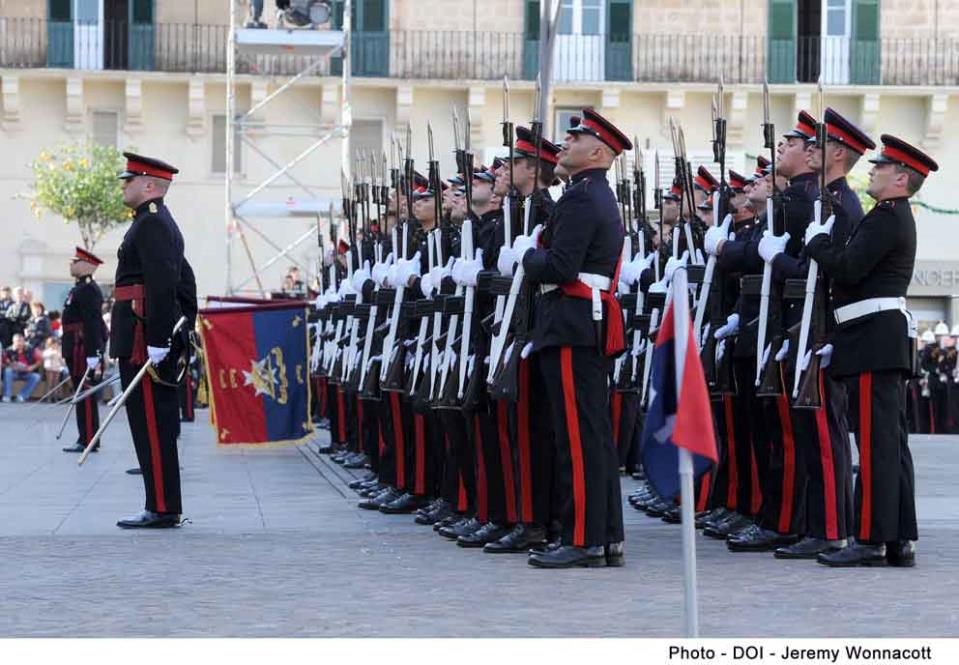Maltese society has moved on since the island was declared republic 40 years ago, and the catholic religion is no longer central to cultural activities, President Marie Louise Coleiro Preca said today uring her Republic day address.
“On such an important day, we should be questioning what is a secular process and religious diversity, and how to act in this context."
“Elsewhere, the same process that we are experiencing today has provoked extreme reactions from fundamentalists who felt threatened, and at the same time, close enough to power to impose their values. I believe instead, that any positive purpose, whatever its origins, should be given space in the public sphere,” the President said.
“This is the kind of democracy I want to see flourish in our country; democracy without intrusion, based on diversity, to be able to dialogue openly and where everyone may have the opportunity to prosper.
“An inclusive Republic expects the Presidency to dismantle the artificial boundaries that prevent us from moving close to each other, and face one another. This Presidency will serve as a bridge so that people with diverse aspirations, desires and visions, come together and translate their differences into collaboration based on dialogue and true respect for each other.

“For this dialogue to take place, different languages have to become one language, which utters the word solidarity in unison; different views become one view so that together, we can make a difference, our fears become our fear that the country is failing its vulnerable, and our aspirations become one aspiration, that fosters democracy and social justice.”
The President also weighed in on the need for Constitutional reform during her speech.
“The Constitution of Malta was created fifty years ago, with its prime aim being the sovereignty of our country. The Constitution provides a framework for administrative work and the governance of the country.
“But along the years, as in any other democratic country, socio-economic developments have taken place, and today, the Constitution must be in tandem with the realities of the country and the need of its people.”
She said a broad discussion on Constitutional reform needs to take place, involving not just politicians, but the wider public. This needs to be done in order to access and decide on the necessary changes needed for the current realities of Malta’s society.

“Meaningful dialogue is a two-way communication, where the leaders learn as much as they teach, speak as much as they listen, and are enriched by the wisdom and experiences of the people, as much as by their own words and their own work.
“I truly believe that the Republic can mature democratically, if there is unity, if people dialogue, if intellectual thought intertwines with popular wisdom, if we listen to the sceptical, if we do not accept mediocrity in thought just because it suits our purpose, and if we take into consideration wisdom no matter from where it emanates.
“A Republic can only remain valid if it distinguishes between trusted leadership and an undemocratic authority, and one based on experts of both scientific and experiential critical thinking.
“A Republic that doubts intellectuals, and stifles, ridicules or ignores critical thinking, is weak and one that has not matured to its fullness. The only viable approach to a strong democratic Republic is that of critical literacy, a community which must continue to learn.”
On the topic of migration, Ms Coleiro Preca called for more international solidarity.
“The movement of people around the world is not novel to our region. However, we are currently experiencing dramatic displacement of people because of globalisation.
“My thoughts are with the thousands of people who lost their lives along a difficult journey, which was meant to give them a better life.

“A caring Republic should seek the refuge of international solidarity, so that the movement of people, so much a reality today, should be a quality experience, and not a tragic end to many hopes and lives.
"I quote Pope Francis who said, I wonder if Europe is weary under the pressures of today’s challenges. There is the need to seek international collaboration in this regard and not depend only on the national context.
She called poverty and precarious employment the scourges of modern society.
“Forty years ago, we pledged that our Republic would be founded on work. Since then, thousands of jobs have been created and we renewed our economy.
“However, we are still far from fully realising the oath that we made to each other then. T his is not only because there are still thousands of unemployed people, but a number of workers are being exploited, working in hazardous or precarious conditions.
“Not all employment gives dignity. A Republic based on work should protect the dignity of the worker with the same zeal it gives to the statistics of employment. Industrial wellbeing is built on proper working conditions.
“Therefore, I consider the precarious employment as a disease that not only undermines well-being, but destroys individuals and families that we cherish so much.
“Precarious employment also hinders the level playing field among employers. My appeal is that profit should never outweigh the urgency to give workers what is rightfully theirs; workplaces that assert workers’ dignity. There are those who for some reason cannot work within paid employment.”